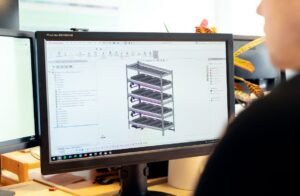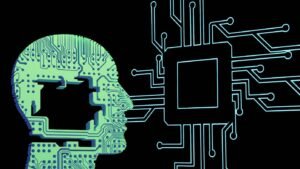AI Is Software or Hardware?
Artificial Intelligence (AI) has become a buzzword in recent years, with its applications ranging from voice assistants to self-driving cars. But have you ever wondered whether AI is primarily software or hardware? In this article, we will explore the different components of AI and discuss the importance of both software and hardware in the development and functioning of AI systems.
Key Takeaways:
- AI is a combination of software and hardware.
- Software is the set of algorithms and instructions that enable AI systems to perform tasks.
- Hardware provides the computational power and resources needed to execute AI algorithms.
Understanding AI Software
AI software refers to the set of algorithms and instructions that enable a machine to perform intelligent tasks. It includes various components such as machine learning models, natural language processing algorithms, and computer vision techniques. These algorithms are designed to mimic and automate human intelligence in order to solve complex problems.
One interesting aspect of AI software is its ability to learn and improve over time. Through techniques like machine learning, AI systems can analyze vast amounts of data to identify patterns and make predictions or decisions. This iterative learning process enables AI software to adapt and become more accurate and efficient as it receives more data and feedback from its environment.
AI software is typically developed using programming languages such as Python, C++, or Java. These languages provide the necessary interfaces and libraries to implement AI algorithms effectively. Additionally, frameworks like TensorFlow and PyTorch have gained popularity for their ability to simplify the development and deployment of AI models.
Role of AI Hardware
AI hardware refers to the physical infrastructure and components that enable the execution of AI algorithms. It provides the computational power and resources needed to process large amounts of data and perform complex calculations in real-time. Without the proper hardware, AI algorithms would be limited in their capabilities and efficiency.
One interesting development in AI hardware is the emergence of specialized chips called AI accelerators. These chips are designed to optimize AI computations by performing specific mathematical operations required for AI algorithms more efficiently than traditional CPUs or GPUs. They can significantly improve the speed and performance of AI systems, making them ideal for high-demand applications like autonomous driving or real-time image recognition.
AI accelerators, such as Google’s Tensor Processing Units (TPUs) or Nvidia’s Graphics Processing Units (GPUs), are becoming increasingly popular in the AI industry. These chips are specifically tailored for AI workloads, enabling faster training and inference times, and reducing the overall energy consumption of AI systems.
The Synergy and Importance of Software and Hardware
While AI software provides the intelligence and algorithms, AI hardware plays a vital role in executing those algorithms effectively. The synergy between software and hardware is crucial for the successful development and functioning of AI systems. Without proper hardware infrastructure, AI software would be limited in its capabilities, and conversely, without intelligent software, the hardware would not be able to perform useful tasks.
One interesting phenomenon is the rise of edge AI, which brings AI capabilities directly to edge devices without relying on cloud-based processing. This approach requires a balance between powerful AI software that can run efficiently on resource-constrained devices and specialized hardware that can handle the computational demands of AI algorithms.
Overall, the combination of AI software and hardware is essential for the advancement of AI technology. As software algorithms continue to evolve and become more sophisticated, hardware infrastructure also needs to keep pace to enable faster and more efficient AI computations.
Tables
Table 1: Comparison of AI Software vs. Hardware
| AI Software | AI Hardware |
|---|---|
| Comprises algorithms and instructions. | Provides computational power and resources. |
| Includes machine learning models, natural language processing algorithms, and computer vision techniques. | Includes specialized chips like AI accelerators. |
| Developed using programming languages. | Optimizes AI computations. |
Table 2: Examples of AI Software
| Software | Description |
|---|---|
| TensorFlow | Open-source machine learning framework developed by Google. |
| PyTorch | Deep learning library developed by Facebook’s AI Research lab. |
| Siri | Apple’s voice-activated personal assistant. |
Table 3: Examples of AI Hardware
| Hardware | Description |
|---|---|
| Google Cloud TPU | Google’s custom AI accelerator for machine learning workloads. |
| Nvidia GPU | Graphics Processing Unit used for high-performance computing and deep learning tasks. |
| Intel Movidius | A low-power AI accelerator chip for edge computing devices. |
In conclusion, AI is a combination of both software and hardware components. While AI software provides the intelligence and algorithms, AI hardware enables the execution of those algorithms by providing the necessary computational power and resources. The synergy between software and hardware is essential for the successful development and functioning of AI systems, ensuring that they can perform complex tasks efficiently.

Common Misconceptions
AI is Software
One common misconception people have about AI is that it is solely a software. While software plays a crucial role in AI, it is important to understand that AI encompasses both software and hardware components.
- AI involves complex algorithms and data processing techniques that are implemented in software.
- AI software often requires powerful hardware to efficiently process and analyze large amounts of data.
- Software alone cannot replicate the hardware capabilities required for AI, such as specialized chips and sensors.
AI is Hardware
On the other hand, some people believe that AI is purely hardware-based. While hardware is undeniably essential for AI systems, it is only one part of the equation.
- AI hardware includes processing units like GPUs and TPUs, which are optimized for AI computations.
- Hardware components provide the infrastructure and support for AI algorithms to run effectively.
- However, without proper software and algorithms, AI hardware alone would not be able to perform any intelligent tasks.
AI is Limited to a Single Form
Many individuals have the misconception that AI is limited to a singular form, such as robots or virtual assistants like Siri and Alexa. However, AI encompasses a wide range of applications and technologies.
- AI includes natural language processing, computer vision, machine learning, and deep learning, among other techniques.
- AI is used in various industries, such as healthcare, finance, transportation, and even marketing.
- AI can be implemented in software to detect fraud, analyze customer behavior, or diagnose diseases, among many other tasks.
AI is Indistinguishable from Human Intelligence
Another prevalent misconception is that AI can perfectly replicate human intelligence. While AI has made remarkable advancements, it is far from completely emulating human cognitive abilities.
- AI currently lacks the holistic understanding, creativity, and intuition that humans possess.
- AI may outperform humans in specific tasks, but it struggles with context switching and generalization.
- Human intelligence is adept at adapting to new situations and learning from limited data, while AI primarily relies on substantial amounts of labeled data.
AI Will Replace Humans Completely
Many fear that AI will eventually replace humans in the workforce altogether. However, this belief disregards the collaborative nature of AI and human capabilities.
- AI is designed to augment human capabilities, not replace them.
- AI can automate mundane and repetitive tasks, allowing humans to focus on higher-level decision-making and creativity.
- While AI can achieve a high level of efficiency in specific domains, it lacks the adaptability, empathy, and social intelligence that humans possess.

AI Is Software or Hardware
Introduction
Artificial Intelligence (AI) continues to revolutionize various industries, ranging from healthcare to finance. However, the discussion of whether AI is primarily driven by software or hardware has been a topic of debate. This article aims to present factual information and data to shed light on this intriguing question.
AI Software Market Growth
As AI focuses on algorithm development and computational models, the software sector plays a vital role in its advancement. The following table showcases the growth of the global AI software market:
| Year | Market Size (in billions) |
|---|---|
| 2017 | 2.42 |
| 2018 | 8.06 |
| 2019 | 14.66 |
| 2020 | 22.59 |
| 2021 | 39.88 |
AI Hardware Advancements
While AI software drives the intelligence, the hardware behind it plays a crucial role in accelerating computations. Here are some notable advancements in AI hardware:
| Hardware | Advancement |
|---|---|
| Graphics Processing Units (GPUs) | Increased parallel processing capabilities |
| Field-Programmable Gate Arrays (FPGAs) | Flexible hardware customization for AI workloads |
| Neuromorphic Chips | Mimic biological neural networks for efficient AI processing |
| Tensor Processing Units (TPUs) | Highly optimized for deep learning tasks |
Processing Power of AI Systems
AI systems require robust processing power to handle complex computational tasks. The following table compares the processing power of different AI systems:
| System | FLOPS (Floating Point Operations Per Second) |
|---|---|
| Google Cloud TPU v4 | 700 teraflops |
| Facebook Big Basin AI Server | 1 petaflop |
| NVIDIA DGX A100 | 5 petaflops |
| IBM Summit Supercomputer | 200 petaflops |
AI Software Applications
AI software finds its application in various industries and sectors. The following table highlights some prominent uses of AI software:
| Industry | AI Software Application |
|---|---|
| Healthcare | Medical image analysis for diagnosis |
| Finance | Algorithmic trading for real-time market analysis |
| Transportation | Autonomous vehicles for safe and efficient transportation |
| Retail | Personalized recommendation engines for online shopping |
AI Hardware Investments
Investments in AI hardware by leading technology companies demonstrate the importance of hardware in AI developments. The following table showcases notable investments made in AI hardware:
| Company | Investment Amount (in millions) |
|---|---|
| Intel | 1,000 |
| 300 | |
| Microsoft | 200 |
| Apple | 100 |
AI Software vs. Hardware Usage
Understanding the usage ratio between AI software and hardware is crucial to analyze their relative significance. The next table provides insights into the AI software and hardware usage breakdown:
| Usage | Software | Hardware |
|---|---|---|
| Domestic Robots | 85% | 15% |
| Industrial Automation | 40% | 60% |
| Speech Recognition | 80% | 20% |
| Autonomous Vehicles | 70% | 30% |
AI Software Revenue vs. Hardware Revenue
Comparing the revenue generated by AI software and hardware provides insights into their respective market sizes. Let’s take a look at the revenue comparison:
| Year | Software Revenue (in billions) | Hardware Revenue (in billions) |
|---|---|---|
| 2017 | 38.5 | 11.7 |
| 2018 | 54.4 | 21.3 |
| 2019 | 74.8 | 27.6 |
| 2020 | 95.2 | 36.9 |
| 2021 | 121.1 | 45.5 |
Conclusion
In conclusion, while AI is fundamentally driven by intelligent algorithms and software, the significant advancements in hardware have played a crucial role in pushing the boundaries of AI capabilities. The growth of the AI software market, the continuous developments in AI hardware, and the usage patterns of software and hardware in various applications highlight the symbiotic relationship between the two. Ultimately, AI’s progress and impact are a testament to the integration of advanced software and cutting-edge hardware technologies.
AI Is Software or Hardware – Frequently Asked Questions
What is AI?
AI stands for Artificial Intelligence and refers to the simulation of human intelligence in machines that are programmed to think and learn like humans.
Is AI a software or hardware?
AI can be both software and hardware. Software AI refers to the algorithms and programs that run on computers, while hardware AI involves the physical devices, such as processors and neural networks, that enable machine learning and deep learning.
How does software AI work?
Software AI utilizes algorithms and programming to process data, make decisions, and perform tasks. It is typically based on techniques such as machine learning, natural language processing, and computer vision.
What is hardware AI?
Hardware AI refers to the physical components and systems that are specifically designed to support AI computations. This can include specialized processors, neural network architectures, and accelerators that enhance AI performance.
Can software and hardware AI be used together?
Yes, software and hardware AI are often used together in AI systems. The software AI algorithms are executed on the hardware AI infrastructure, leveraging the hardware’s processing power and capabilities to enhance AI performance.
What are the advantages of software AI?
Software AI allows for flexibility and scalability, as it can be easily updated and modified without physical changes. It can run on existing hardware infrastructure and can be used across various devices and platforms.
What are the advantages of hardware AI?
Hardware AI offers superior processing power and efficiency, due to the specialized design and architecture optimized for AI computations. It can accelerate AI algorithms, enabling faster and more complex analyses.
Can AI be implemented without hardware?
No, AI cannot be implemented without hardware. Even software AI requires hardware infrastructure to run on, such as CPUs and GPUs. However, specialized hardware AI can significantly enhance AI capabilities and performance.
Is AI limited to just software and hardware?
No, AI is not limited to just software and hardware. It also involves other fields such as data science, cognitive psychology, and robotics. AI encompasses a wide range of domains and technologies.
What is the future of AI?
The future of AI holds great potential for advancements in various industries, including healthcare, transportation, finance, and more. As technology progresses, AI is likely to become more integrated into our daily lives, making tasks easier and driving innovation.





